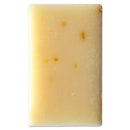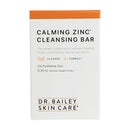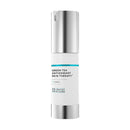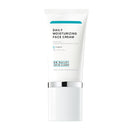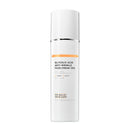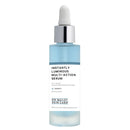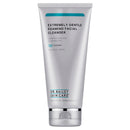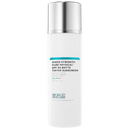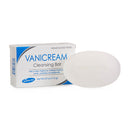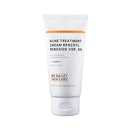Should You See A Dermatologist and How to Choose a Good One?

What credentials are important to administer the right skin care treatment for you?
When you are worried about a skin problem, a dermatologist is the person with the most training, experience and expertise to help you. This is especially true when you need professional skin care treatment for acne, rosacea, skin cancer, rashes, skin sores, and even wrinkles and age spots. But not all medical professionals are the same so what should you look for in a dermatologist?
How do you choose a dermatologist?
A dermatologist spends a minimum of 12 years after graduating from high school studying, training and being tested in the science of skin physiology and skin problems. This includes:
- 4 years in college where they take college science classes to prepare to enter medical school.
- 4 years of medical study focused solely on the science and medicine of the human body. Here, they earn either a degree of Medical Doctor (MD) or a Doctor of Osteopathy (DO) degree.
- 1 year of required internship in an official and accredited hospital training program where they learn to be a general doctor. Then, they are eligible for a license to practice medicine. Licenses are granted by states.
- 3 years of study AT MINIMUM in an official, accredited dermatology residency program. This is where all the previous 9 years of study are now focused and honed on the complex science and medicine of the skin. This includes how it works, what happens when it does not work and how to fix skin problems.
In these last, four years of study, a dermatologist is a full-fledged and licensed physician, treating patients while they also study.
It takes a lot of hands-on experience and study to be a real dermatologist.
There are milestone tests along the way that must be passed in addition to study and practice requirements that must be fulfilled. Typically, a dermatologist is about 30 years old when they finally finish the process and become a dermatologist and are now a skin health expert.
Before going into practice though, they also take a really hard and long examination, called the Dermatology Boards. If they pass, you will see their brag.
A real dermatologist with all the training and who has passed the difficult certification test will add to their title “Board-Certified Dermatologist,” or the letters “FAAD” will be after their name.
This means they are a Fellow of the American Academy of Dermatology and have been allowed to join the professional society of dermatologists. Another way to say the same thing is “Diplomat of the American Board of Dermatology.”
How can your be sure your skin doctor is a real dermatologist?
Just like anything, there are “knock-offs.” Yes, even in medicine. Today, it is “buyer beware,” and you need to know the difference. There are other certifications that might sound like a doctor is a dermatologist, but they are not. These non-certified practitioners have not gone through the rigorous education and testing required to be a dermatologist. They receive “certification” by organizations that hold educational conferences in hotels where “certification” can be attained by attendance. There are probably even online certifications now, too, I haven’t looked.
What is critically important is that you look for the real titles attached to your doctor’s name to be sure they are a real dermatologist.
These titles indicate that your doctor has met the high level of education, training and testing that lead to real certification - and that they are a real dermatologist!
What necessary titles does a real dermatologist have?
- Certified by the American Board of Dermatology
- Certified by the American Osteopathic Board of Dermatology
- Certified by the Royal College of Physicians and Surgeons of Canada
Why are fake dermatologists so common now?
Money! Yep. Many medical offices are advertising to be skin experts… especially true in this era when lucrative cosmetic dermatology procedures such as laser and injectable treatments are so popular.
Your care depends on the expertise of the physician leading the care team that often includes nurses, physician assistants and nurse practitioners. But you want a real Board Certified Dermatologist setting the standard and supervising your care.
I’ve even seen physicians certified in other medical specialties say they practice dermatology and claim they are Board Certified, but fail to state that the board certification was NOT in dermatology. Board Certified 'real' Dermatologist Cynthia Bailey M.D.
Yes, it makes a difference. You want the entirety of your skin physiology considered when you are evaluated and treated for any skin related issue – cosmetic or non-cosmetic.
Have I piqued your interest? To learn more, take a look at this informative graphic just created by the American Academy of Dermatology. There are links to help you find a real Board Certified Dermatologist near you!

